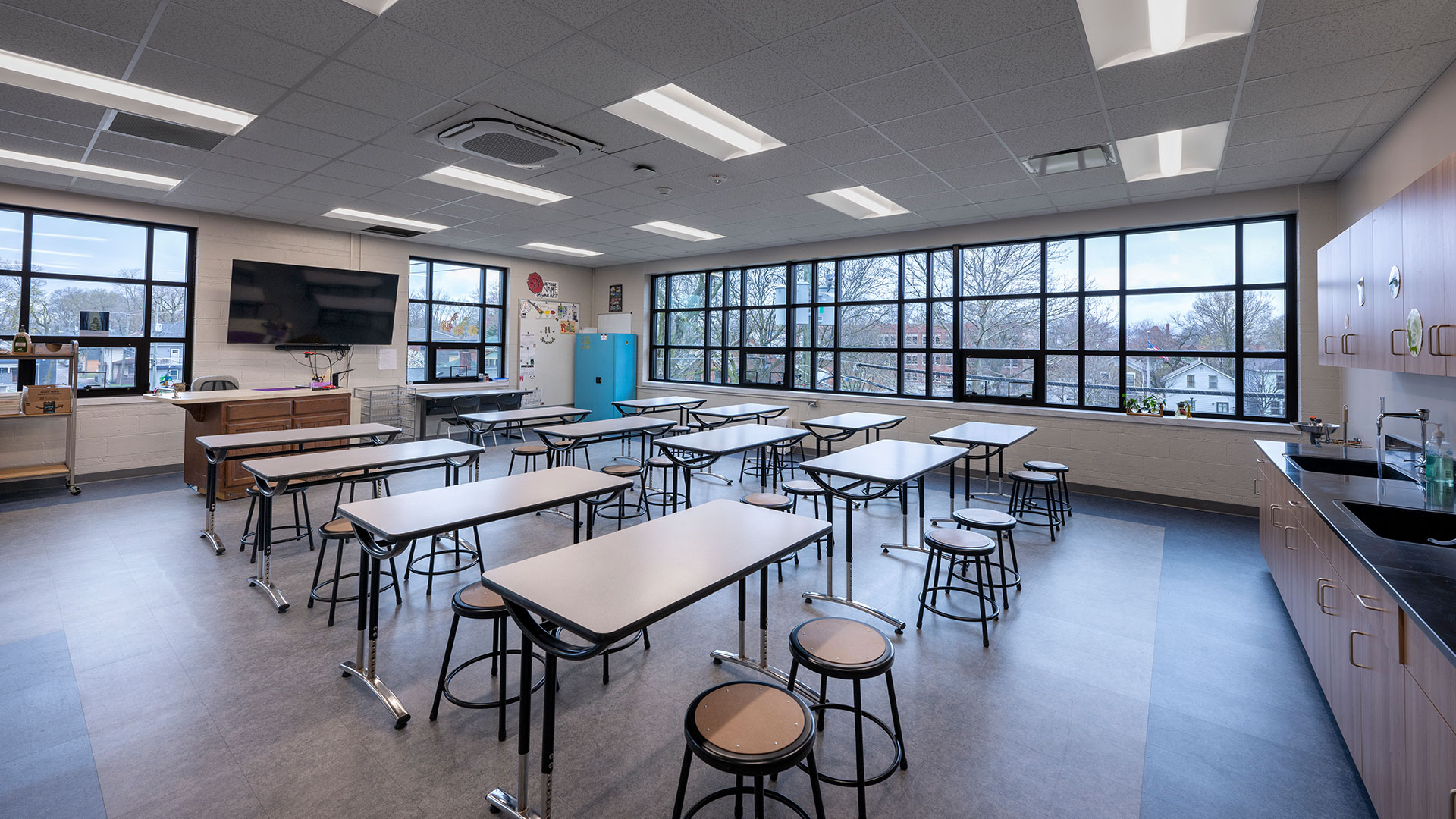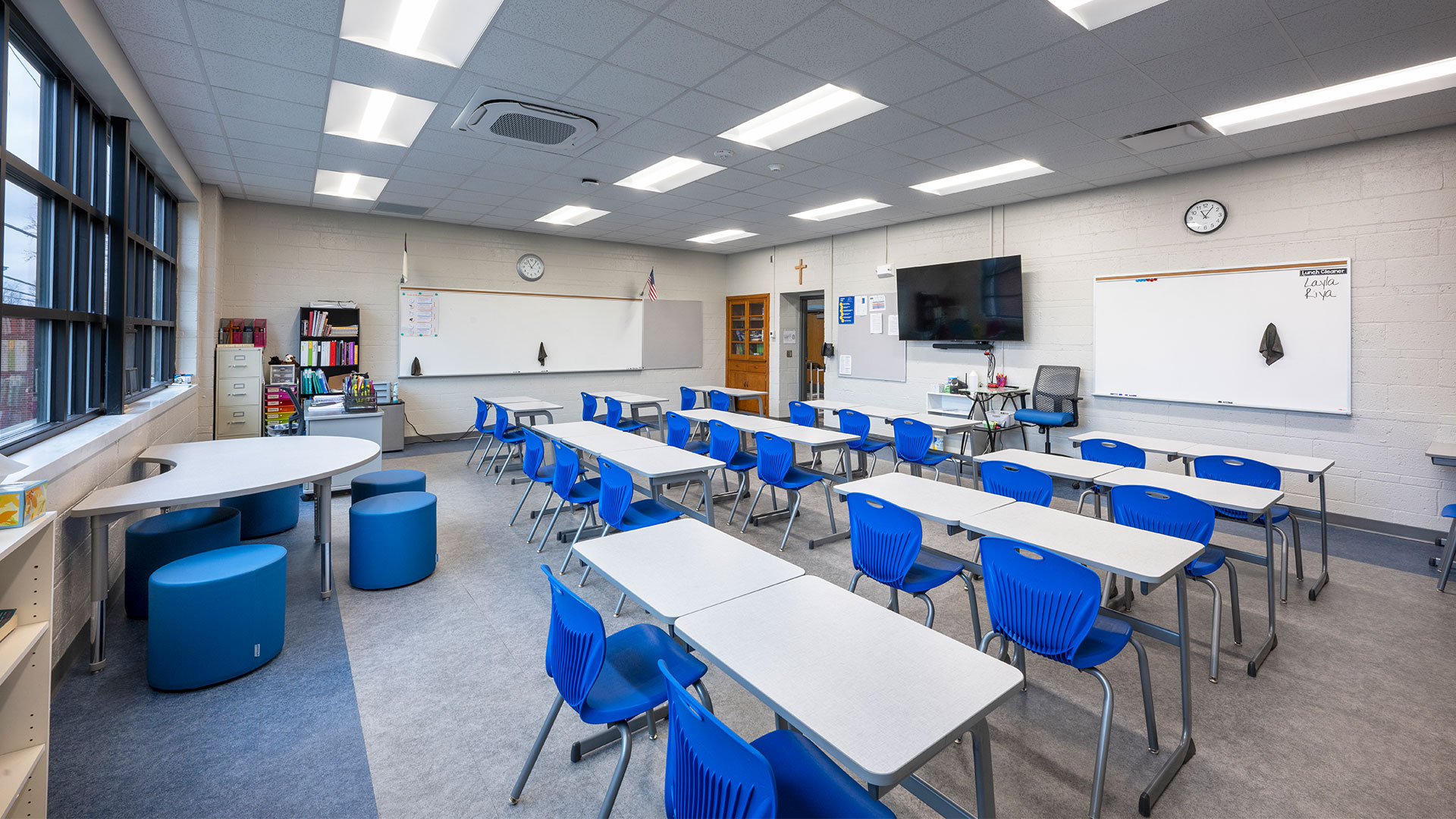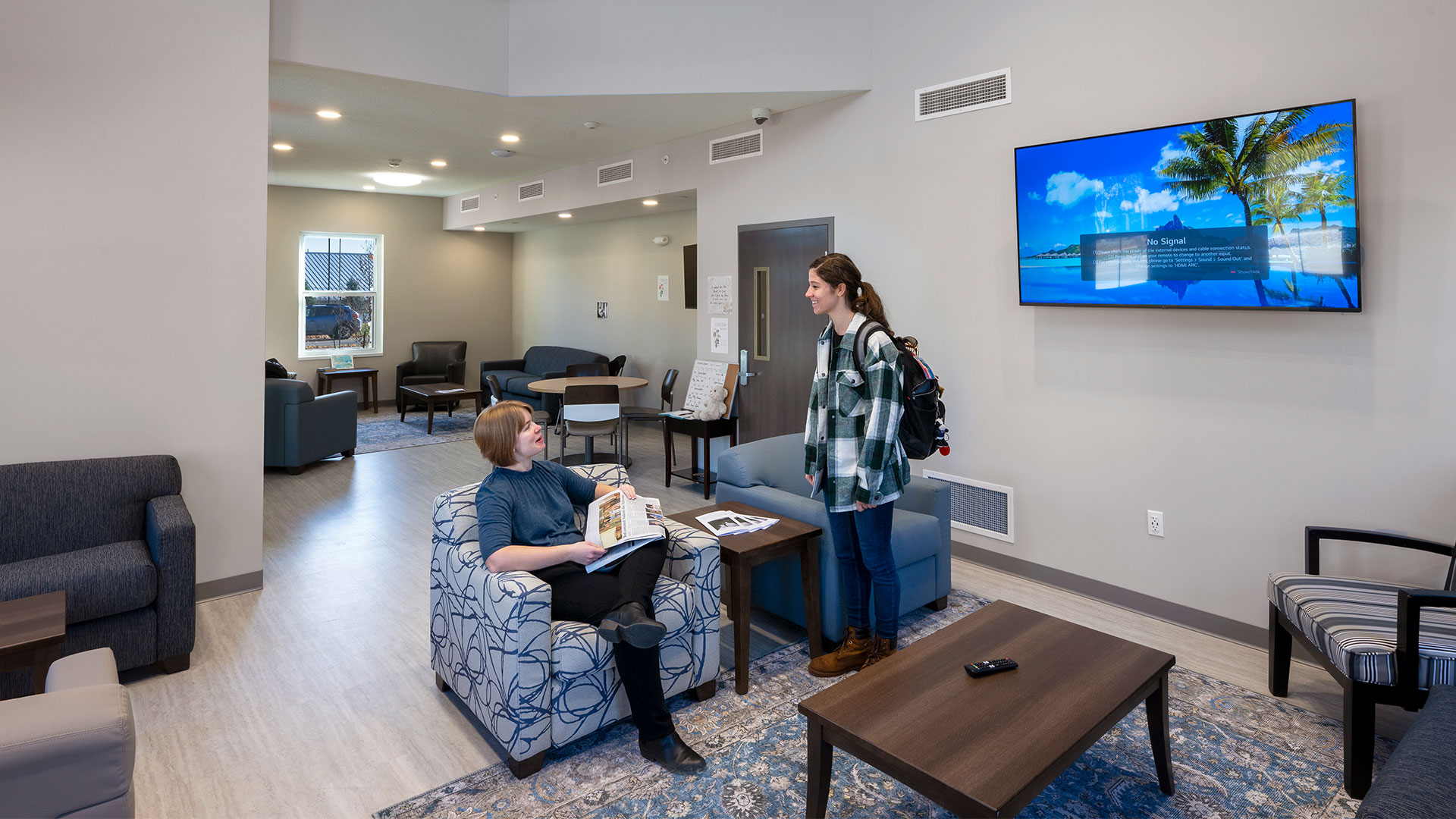Breathing Easy – The Importance of Air Quality in Schools
By Laura Zolcak
August 5, 2024Post Tagged in
Students spend a significant amount of time inside the classroom, so it’s important that they are in a healthy and productive environment.One of the largest factors impacting student health is indoor air quality (IAQ). Poor indoor air quality is linked to illness, increased absenteeism, and poor student performance, but a well-designed and maintained HVAC system can improve indoor air quality and support student health and academic success. What is Indoor Air Quality (IAQ)?IAQ refers to the condition of air inside a building in relation to the health and comfort of its occupants. Often, when we think of “air quality” we think of pollutants and the need for fresh air. However, there are many factors that impact indoor air quality including temperature, humidity, climate, space activity, and pollutants. |

|

 |
Temperature and Humidity Temperature and humidity play a large role in maintaining good indoor air quality. If a classroom is too hot, cold, dry, or humid, students may feel uncomfortable. If a student feels uncomfortable, they may lose focus, hurting their academic performance. In addition to comfort, temperature and humidity levels are also crucial factors when maintaining a safe environment. If the humidity levels inside a building are too high, mold and other allergens are more likely to grow and spread, triggering allergic reactions in students and staff. High humidity levels are also a breeding ground for bacteria and viruses and can promote the spread of illnesses. However, if the humidity levels inside a building are too low, students often experience dry skin, itchy and irritated eyes, and increased respiratory issues. Space Activity The number of people and type of activity in a confined space can affect indoor air quality. If there are too many people in a space and not enough ventilation, CO2 levels will be too high. This can lead to increased fatigue, nausea, headaches, and decreased focus among building occupants. |




